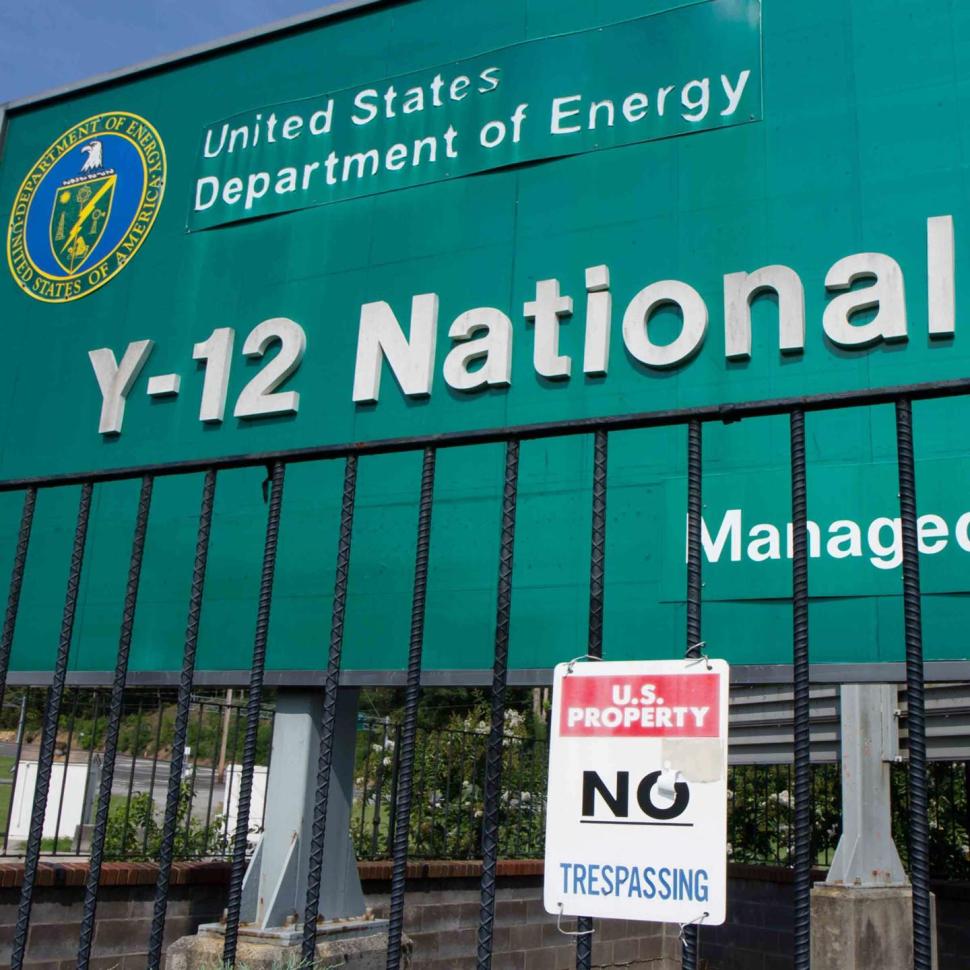(NationalSecurity.news) The United States and its allies have historically worked to curb the spread and proliferation of nuclear weapons, but a new report finds that, at the same time, the U.S. was doing its best to hand out its own nuclear weapons secrets.
As noted by the Center for Public Integrity, in June 2014 an employee at the Y-12 National Security Complex in Tennessee unexpectedly found U.S. nuclear secrets stuffed inside a trash bag marked for disposal, along with regular trash. Upon closer examination, the employee found another 19 documents in the bag that “were either marked classified or were later determined to contain information that should have been labeled secret,” the watchdog organization said.
About 12 more bags of trash were sitting nearby waiting to be taken to an open landfill where Y-12 employees regularly dump garbage that supposedly has no national security implications. However, when workers for the contractor responsible for running the site at the time, Babcock & Wilcox Technical Services, Y-12, LLC, examined two of those dozen bags, they found additional top secret documents.
“(They) then decided not to search any additional containers because they were, given the prior results, presumed likely to contain additional classified information,” said a preliminary notice of violation issued Feb. 2 by the Department of Energy’s enforcement division.
As the center reported further:
Many of the records discovered that day detailed how the department’s employees and contractors worked with nuclear explosive materials, such as highly-enriched uranium, housed at the Y-12 complex. But it quickly got worse: Further investigation by the National Nuclear Security Administration, which oversees such work, led officials to conclude that nuclear secrets had been thrown away with lax security at the Tennessee plant for more than 20 years.
In a Jan. 28 letter Frank Klotz, head of the NNSA, informed the head of Babcock & Wilcox, David Richardson of Charlotte, N.C., that he was citing the company for three violations, even though the contractor had been replaced as the site manager on July 1, 2014. NNSA found that the contractor failed to properly label classified data, failed to protect and control that information and was so weak on its own self-assessment of performance that national defense secrets were susceptible to theft by adversaries for years.
The combination of violations dealth with “actual or high potential for adverse impact on the national security,” and “a significant lack of attention or carelessness” with the chance of harming U.S. national security, said the agency’s notice.
Jud Simmons, a spokesman for BWX Technologies, the parent company of Babcock and Wilcox’s government operations unit, told CPI “there was no compromise of classified information” regarding the incident that ultimately led to the NNSA’s investigation.
“While still serving as the contractor at Y-12, we implemented an effective corrective action plan that was accepted by the customer,” Simmons said. “We believe that the NNSA’s decision to not impose a civil penalty is appropriate.”
Klotz had initially threatened to fine the contractor $240,000, but after discussions with Richardson and his associates in April 2015, Klotz decided to drop it.
A subsequent examination of the items that were obtained from the trash bags by the Dept. of Energy found that some of the documents were never reviewed by staff responsible for making decisions about classification. And those that had been reviewed were haphazardly categorized, the NNSA said in its notice to Babcock & Wilcox.
Some documents were designated classified even though the did not contain any classified data.
However, those that did were genuinely exposed to theft during their transition from the site to the landfill, the Energy Department determined. Further, they were not “destroyed beyond recognition,” as required by the department, to assure they could not be recovered.
Since 2005, documents “were transported by a truck driver without clearances to an unprotected landfill; before then, it’s unclear where they went, but the notice says that no special precautions were taken even then for discarding the classified material,” CPI noted in its report.
See also:
NationalSecurity.news is part of the USA Features Media network of sites. For advertising opportunities, click here.
Materials reuse policy: Click here


